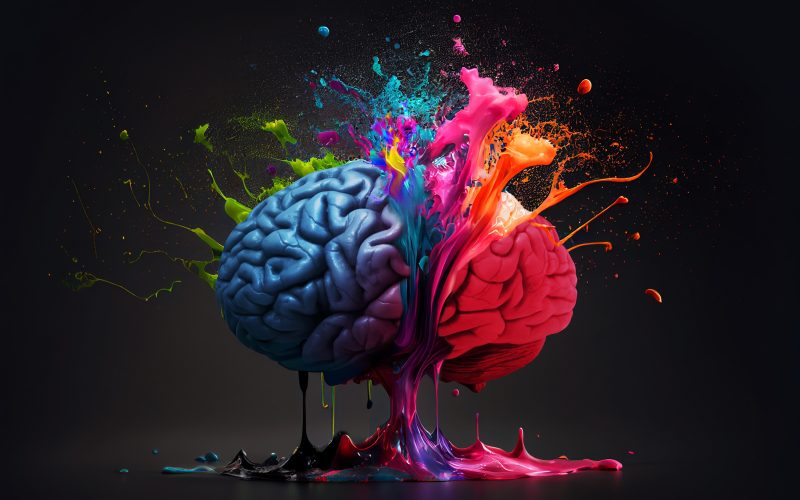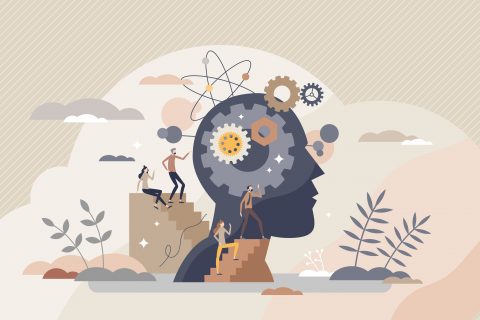Art imitates life – and researchers are learning that art sustains life, too. Susan Magsamen is the founder and director of the International Arts + Mind Lab, Center for Applied Neuroaesthetics at Johns Hopkins University School of Medicine, where she is a faculty member. She joins host Krys Boyd to discuss the many ways art lengthens life spans, triggers brainwaves, counteracts loneliness, and generally makes us better. Her book, written with Ivy Ross, is “Your Brain on Art: How the Arts Transform Us.”
Bonus Blog: Each art form helps our brains in unique ways
— By Brianna Flores, Think Intern
Art comes in many different forms: writing poetry, dancing and even sculpting. It’s all around us to admire and interpret. But art can do so much more than entertain us.
Science shows that art can do wonders for our mental health. Our guest, Susan Magsamen, studies how art can help with our well-being.
“A lot of significant mental health issues have emerged because we don’t have these outlets for being able to share what we’re feeling,” Magsamen says. “The lack of arts has really made us less healthy, less creative, less productive.”
Practicing art is proven to help produce more dopamine or serotonin, which are neurotransmitters that help us feel good.
“I don’t think you can think of a single time where you danced and didn’t feel better,” Magsamen says. “And, you know, that’s so intuitive. It’s so much of how we’re wired.”
When we make art with our hands, like drawing or building with clay, our brains go into a sense of timelessness. Like mediation, it helps you enter a state of mind when you’re not judging or criticizing.
“One of the highest forms of mediation [is] when you’re making art,” Magsamen says. “You’re releasing things like oxytocin. You’re also lowering cortisol.”
Oxytocin and cortisol are hormones that control stress and behaviors. This is why any expression of art is recommended when you are going through an especially stressful time.
Poetry and music also benefit us in unique ways. Songs and spoken words help our brains develop stronger neural pathways that then build our foundation for how we grow and learn. Poetry can be especially helpful for child development.
“It’s a very powerful form of art,” Magsamen says. “We’re seeing things like spoken word start to really be used by kids to help express their feelings and their emotions.”
Whether it’s writing poetry or singing in the shower, Magsamen recommends that we carve out time in our daily schedules for expressing ourselves through art.
“You can really think about [art forms] as ingredients that you can use to create the recipe that you need for whatever part of your life you’re trying to attend to.”
Tune in to the podcast above to learn more about how different types of art can improve our daily lives.





